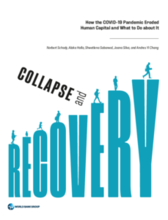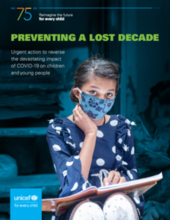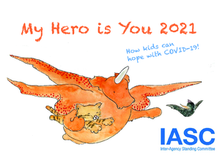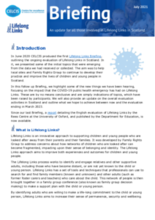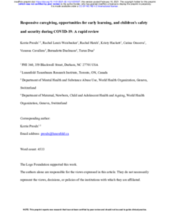This section includes resources for promoting nurturing care and positive development for children during the COVID-19 pandemic. Resources include those that offer guidance for parents and caregivers who are caring for children during lockdowns and quarantines who do not have access to schools and other services.
Displaying 1 - 10 of 128
This World Bank report provides a first comprehensive review of global data for young people who were under the age of 25 during the pandemic. It shows that the COVID-19 pandemic disrupted human capital accumulation at critical moments in the life cycle, derailing development for millions of children and young people in low- and middle-income countries.
This report is a follow up to the ‘What Makes Life Good?’ report published in 2020 about the views of care leavers on their well-being, using pre-pandemic data collected between 2017 and 2019 through the Your Life Beyond Care survey. In this follow-up report, the authors compare the ‘What Makes Life Good?’ pre-pandemic data from 1,804 care leavers to data from 2,476 care leavers in 2020 to 2021, since the start of the COVID-19 pandemic. This has allowed them to identify priority areas that have emerged recently. Care leavers aged 16 to 25 were asked the same questions at both time points; about their living arrangements and safety, financial well-being, relationship with care workers, emotional support, stress, loneliness, overall well-being, and more.
As UNICEF commemorates its 75th year, this report lays out the work in front of us by taking stock of the ongoing impact of COVID-19 on children and the road to respond and recover to reimagine the future for every child.
The book aims to help children stay hopeful and positive during the COVID-19 pandemic. The story is a sequel to ‘My Hero is You: how kids can fight COVID-19!’, published in April 2020.
Both books have been released by a collaboration of 60 organizations working in the humanitarian sector, including the World Health Organization, UNICEF, the United Nations High Commissioner for Refugees, the International Federation of Red Cross and Red Crescent Societies and the MHPSS Collaborative for Children & Families in Adversity.
In June 2020 CELCIS produced the first Lifelong Links Briefing, outlining the ongoing evaluation of Lifelong Links in Scotland. In it, we presented some of the initial topics that were emerging from the data we had received or collected. The aim was to help local sites and Family Rights Group to continue to develop their practice and improve the lives of children and young people in Scotland.
In this article, researchers Philip Fisher, Joan Lombardi, and Nat Kendall-Taylor present data from the RAPID-EC U.S. national survey of families with young children and look back at three overarching findings from the first year of the survey.
In this webinar the speakers discussed the implementation experiences and emerging lessons of COVID-19 response strategies of seven programmes that prioritize nurturing care and early childhood development in their work.
This short animated video, the third in a series focusing on self-care interventions during COVID-19, features children and their parents/families as they go through every day activities during the pandemic.
During this webinar, hosted by UNICEF and Better Care Network, Gillian Huebner presented the paper It’s time for care: Prioritizing quality care for children during the COVID-19 pandemic - Challenges, opportunities and an agenda for action. The presentation was followed by a panel discussion featuring panelists from UNICEF Child Protection, Women in Informal Employment: Globalizing and Organizing (WIEGO), UNICEF Office of Research – Innocenti, and the Early Childhood Development Action Network (ECDAN).
This rapid review takes stock of emerging research on nurturing care for young children during the COVID-19 crisis.

